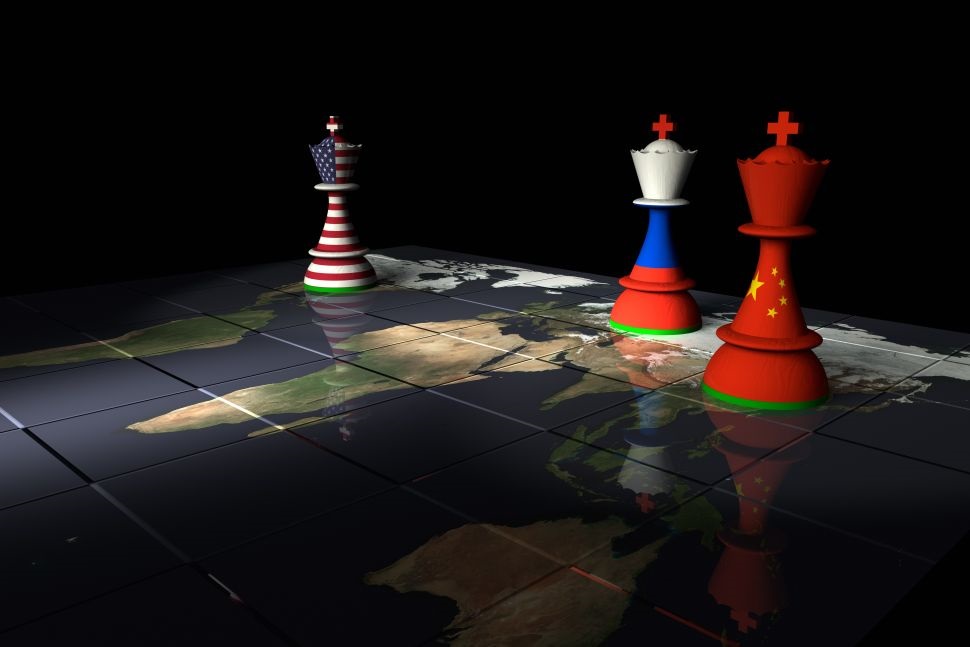Countries continue to form space blocs for scientific and technical cooperation. In the exploration of the Moon, for example, the signatories of the Artemis Accords are opposed by the Sino-Russian bloc. Other countries may join the last one.

How space blocs emerged
The Ukrainian-Russian war had a great impact on international cooperation in the field of space exploration. It can trigger the creation of new blocs that will become rivals both on Earth and in orbit.
The history of international relations in space began at a time when the only countries that could send spacecraft into orbit were the United States and the USSR. During the Cold War, the relations of these countries mainly took the form of rivalry, but they managed to implement several common projects in orbit.
This gave rise to confidence that even rivals can find a common language for the exploration of near Earth space. Based on this confidence, the European Space Agency (ESA) was created. Once it was founded by 10 countries of the continent, and now their number has reached 22, and it is quite possible that it will soon increase again.
The African Space Agency, for example, is arranged similarly. The achievements of the continent’s countries in space are quite modest, but at the same time they can do much more than alone.
New Lunar Confrontation
But the creation of new space blocs can lead to an aggravation of the confrontation. An example is the Artemis Accords. This international agreement provides for the creation by all participants of a joint program for the exploration and development of the Moon. Now it has been signed by 18 countries, including Ukraine.
The aim of the Artemis Accords is to return people to the Moon by 2025. At the same time, astronauts should not just land on the surface of our planet’s moon, but also create a scientific base at its South Pole. An auxiliary station in orbit should also be built.
However, not all countries like that the central role in the new bloc is assigned to the United States. China and Russia have not joined the Artemis Accords. Instead, back in 2019, they concluded an agreement among themselves, the purpose of which should be to land an independent expedition on the same pole of our moon by 2026.
At the same time, the Chinese and Russians are planning to build a base and have already promised to open its doors to everyone. However, whether there will be participants in the Artemis Accords among these countries is not reported. The Celestial Empire conducts the same policy for its space station.

Possible allies of China and Russia
The Sino-Russian lunar alliance has a strongly anti-American character. And participation in the Artemis Accords of Ukraine only aggravates the disputes. Space blocs can conduct a policy of openness, which can weaken the confrontation between them. But not when there is an open military conflict between the participants.
Only two countries are directly involved in the project, opposing the Artemis Accords. But China, besides it, has also created the Asia-Pacific Organization for Cooperation in Space. Its main goal is to promote an alternative GPS Chinese navigation system “BeiDou”. Now this bloc includes Bangladesh, Iran, Mongolia, Pakistan, Peru, Thailand and Turkey.
Each of these countries can become a member of the new “Anti-American” lunar alliance. In addition, the opinion of one of the largest space players, India, remains unknown. Its position on the war in Ukraine still remains uncertain.
Space blocs and Private space
Theoretically, the situation with the confrontation of states in space would be changed by private carriers. The capabilities of some of them are quite comparable to those of not very large countries. One would hope that they would start building their space programs regardless of all political differences.
But in practice this does not happen. Firstly, the current international laws force them to operate in space within the jurisdiction of the States in which they are registered. Secondly, even in the liberal homeland of rocket startups in the United States, the government strictly controls all such companies and allows them to be independent only where it is profitable for them.
According to www.space.com
Follow us on Twitter to get the most interesting space news in time
https://twitter.com/ust_magazine
